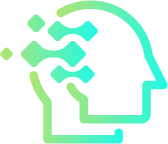AI Tutors: The Future of Learning Explained
Artificial Intelligence is transforming every aspect of education. One of its most promising innovations is the rise of AI tutors — intelligent systems designed to teach, assist, and personalize learning experiences for students. In 2025 and beyond, AI tutors are becoming essential tools in classrooms, universities, and online platforms. They adapt to each student’s pace, answer questions instantly, and make learning more interactive than ever before. In this article, we’ll explore how AI tutors work, their benefits, challenges, and why they represent the future of learning.
Did you know? A recent study found that students who used AI tutoring tools improved their test scores by an average of 20% compared to traditional study methods.
What Are AI Tutors?
An AI tutor is an intelligent digital assistant that uses algorithms, natural language processing (NLP), and machine learning to help students learn more effectively. Unlike static learning apps, AI tutors can analyze performance, adapt lessons, and provide instant feedback tailored to each learner’s needs.
How They Differ from Traditional Learning Tools
- Personalized learning: Each student receives individualized attention and recommendations.
- Instant support: AI tutors answer questions anytime, removing dependency on class schedules.
- Interactive feedback: Students can learn from mistakes in real-time.
- Continuous improvement: AI tutors learn from data to become smarter and more accurate.
In essence, AI tutors combine the empathy of a human mentor with the speed and accuracy of intelligent technology.
How AI Tutors Work
AI tutors use a combination of technologies to simulate the experience of having a personal teacher. The process involves several key steps:
1. Data Collection and Analysis
The AI system collects data from student interactions — such as test results, time spent on lessons, and question patterns. It then analyzes performance trends to understand strengths and weaknesses.
2. Adaptive Learning Algorithms
Once the AI knows a student’s level, it adjusts the lesson difficulty. For example, if a student struggles with algebra, the AI provides simplified explanations and extra practice problems before advancing.
3. Natural Language Understanding
Modern AI tutors, powered by NLP models like ChatGPT, can interpret and respond to natural human language. Students can type or speak questions, and the AI provides clear, contextual answers.
4. Personalized Feedback
Instead of generic comments, AI tutors offer specific, actionable feedback — explaining why an answer is incorrect and suggesting better approaches to problem-solving.
Top Benefits of AI Tutors for Students
The advantages of AI tutors go beyond convenience. They make education more accessible, personalized, and efficient for learners of all ages.
1. 24/7 Learning Support
Unlike human tutors, AI tutors are available anytime, anywhere. Students can study at their own pace, whether late at night or during travel.
2. Customized Learning Paths
AI tutors analyze learning habits to create individualized study plans. This ensures every student progresses at a pace suited to their abilities.
3. Instant Feedback and Assessment
Traditional grading takes days or weeks. AI tutors provide instant feedback, allowing students to understand and correct mistakes immediately.
4. Increased Engagement
Through gamification and interactive learning modules, AI tutors make education fun, engaging, and motivating.
5. Accessibility for All
Students with disabilities or learning challenges benefit greatly from AI tutors, which offer features like text-to-speech, translation, and visual aids.
How Teachers Benefit from AI Tutors
AI tutors are not designed to replace teachers—they act as their digital partners. Educators use AI systems to save time, track progress, and support students more effectively.
Key Advantages for Educators
- Monitor individual performance and class trends in real time.
- Generate personalized assignments and quizzes automatically.
- Receive insights into which topics students find most difficult.
- Focus more on mentoring and less on repetitive administrative work.
In short, AI tutors amplify the teacher’s capabilities, allowing for more meaningful and targeted instruction.
Popular AI Tutor Tools in 2025
Several innovative platforms are redefining digital education. Here are some of the most popular AI tutoring tools making an impact:
1. Khanmigo by Khan Academy
This AI-powered assistant helps students understand math, science, and humanities through interactive conversations and step-by-step problem solving.
2. Squirrel AI
China’s leading adaptive learning platform uses machine learning to provide personalized tutoring for millions of students.
3. Century Tech
This UK-based AI system combines neuroscience with AI to offer real-time data-driven feedback to both students and teachers.
4. Duolingo Max
Duolingo’s AI tutor provides conversational language practice using ChatGPT-powered interactions that mimic real human dialogue.
5. Querium
Focused on STEM subjects, Querium helps students with step-by-step problem solving and adaptive feedback.
Challenges and Ethical Concerns
While AI tutors offer incredible benefits, they also raise important questions about data privacy, bias, and overreliance on technology.
1. Data Security
AI systems collect vast amounts of personal and academic data. Ensuring this data is secure and used ethically is a top priority.
2. Algorithmic Bias
If AI is trained on biased data, it may unintentionally favor certain groups or produce inaccurate results. Developers must ensure fairness and transparency.
3. Maintaining Human Interaction
While AI is powerful, it can’t replace empathy, encouragement, and human connection. Educators must balance AI integration with personal mentorship.
The Future of AI Tutors
In the next decade, AI tutors will become even more advanced and integrated into mainstream education. Future systems will combine virtual reality (VR), augmented reality (AR), and emotional intelligence (EQ) analysis to make learning immersive and responsive.
Predicted Innovations
- Emotionally aware AI that adapts based on student mood or frustration levels.
- Immersive VR classrooms with AI-guided interactive lessons.
- Global AI tutoring networks accessible in every language.
- Full integration with school systems and online universities.
These developments will make education more inclusive and tailored than ever before, ensuring quality learning for everyone, everywhere.
